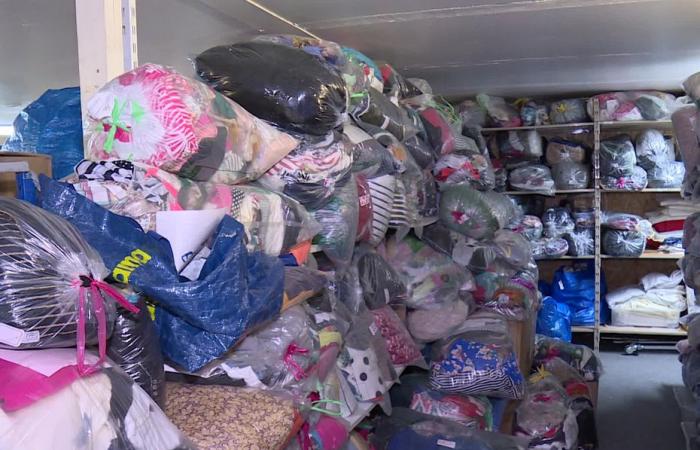
The development of what we call “fast fashion” has unexpected consequences. Reluctantly, the Bayonne humanitarian aid association has decided to no longer accept clothing donations until March.
Company
From daily life to major issues, discover the subjects that make up local society, such as justice, education, health and family.
France Télévisions uses your email address to send you the “Society” newsletter. You can unsubscribe at any time via the link at the bottom of this newsletter. Our privacy policy
In its premises in Bayonne, the Red Cross no longer knows where to put them. All these donations pile up in plastic bags, waiting to be sorted. “You would have come last week, we couldn’t go back. For the volunteers, it was demoralizing“, sighs Martine Cartier, the manager of the Bayonne store.
“We are always happy when we have our donors who arrive to give us linen, dishes and many other things…”, she continues. Except that, for some time now, “Laundry is a big problem for us.”
Despite the number of volunteers, we couldn’t do it anymore!
Martine CartierManager of the Bayonne Red Cross store
And the observation has been the same in recent months. The quality is not there and only 30% of these clothing donations are recoverable, recyclable or resalable. The rest is in too poor condition.
The Bayonne Red Cross is no longer accepting clothing donations until March.
•
© France 3 Aquitaine
The decision was therefore made to no longer receive clothing donations until stocks were reorganized. “It was heartbreaking.”assures Jean-Pierre Arriol, president of the local unit of Bayonne. “This is a situation that we have seen coming for some time. We could no longer sell all the merchandise. And especially the one we didn’t keep.”intended to be recycled.
Because before being sold or given away, donations are rigorously sorted. Then, they come to find their place on the shop racks and wait for their new owners.
The volunteers take great care to give the clothes a second life.
•
© France 3 Aquitaine
Martine Cartier noticed this evolution of the relationship with clothes and therefore with the donations which result from frenetic consumption. Clothes mostly from China,”who are invading the market for these low-cost clothing” sold on the internet.
The fact also of a “overconsumption also from our donors“, points out the manager of the Red Cross store who assures that they can recover”bags that are not even opened“. “All associations find themselves in the same problem as us“, she laments.
“These new clothes compete with the second-hand clothes that we sell and stifle the second-hand market”assures Jean-Pierre Arriol., president of the local unit of Bayonne. However, there could be many opportunities for recycling, including creating insulating materials. “But these are quite expensive solutions to implement and develop.“.
This problem of surplus clothing donations affects several branches of the Red Cross in France. This is why, beyond this temporary suspension, the association is considering solutions to better regulate collections.





